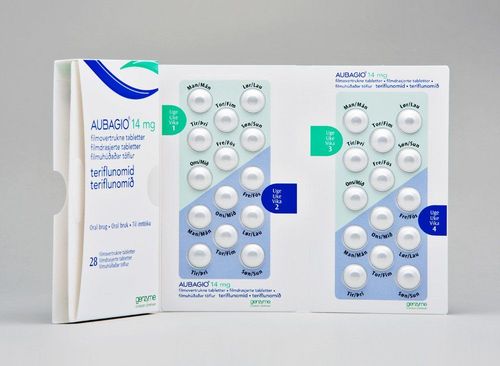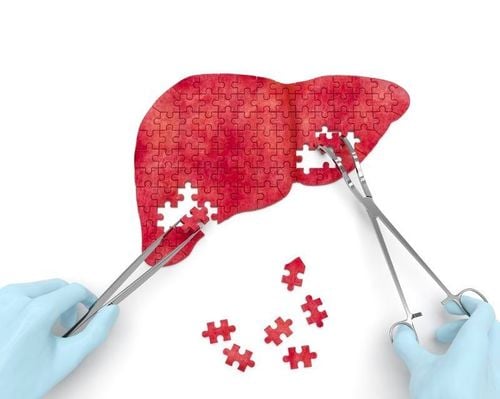This is an automatically translated article.
Besremi is indicated in the treatment of polycythemia vera in adults. When using Besremi, patients may experience some serious side effects for health. Therefore, before using the drug Besremi, patients need to carefully study the information and follow the doctor's treatment.
1. Effects, ingredients and dosage of the drug Besremi
Besremi is a prescription medicine used to treat polycythemia vera in adults. The safety and effectiveness of the drug in children has not been established.
Active ingredients: cordginterferon alfa-2b-njft Other ingredients: benzyl alcohol, glacial acetic acid, polysorbate 80, sodium acetate, sodium chloride, Water for injection. Dosage Information
Usual Adult Dose for Polycythemia vera: Recommended starting dose: 100 mcg by subcutaneous injection every 2 weeks (50 mcg if hydroxyurea injection). Increase by 50 mcg every 2 weeks (maximum 500 mcg) until hematological parameters are stabilized.
2. Serious side effects of Besremi
Besremi can cause serious side effects:
May be fatal May worsen some serious medical conditions that may already be acquired Tell your doctor or pharmacist immediately if any any of the symptoms listed below during treatment. If symptoms get worse, or become severe. Doctors and pharmacists may ask you to stop taking Besremi permanently. These symptoms may go away in some people after they stop treatment.
Mental health problems, including suicide. Besremi may cause the development of mood or behavior problems that may worsen during treatment or after the last dose, including:
Irritability (easily irritated) Restlessness and agitation Bewilderment Depression (feeling helpless, feeling bad about yourself, or feeling hopeless) Unusually large ego Aggressive, impulsive actions Thoughts of hurting yourself or others, or thoughts of suicide Decreased blood cell count. Decreased blood cell counts are common with Besremi and can sometimes be serious, especially thrombocytopenia or white blood cell counts. Red blood cells may also be reduced. Blood cell counts should be checked before starting and during treatment. If your blood cell count is low, you may have anemia, an infection, or problems with bleeding or bruising. With the following symptoms:
Easy bruising Frequent nosebleeds Chills Burning and painful urination Frequent urination Fever Coughing up yellow or pink mucus (sputum) Severe allergic reactions and reactions skin. Besremi can cause sudden, severe allergic reactions. New or worsening autoimmune problems. Besremi can cause autoimmune problems (a condition in which the body's immune cells attack other cells or organs in the body), including thyroid problems, increased blood sugar (hyperglycemia) and type I diabetes. In some people who already have autoimmune problems, it may get worse during treatment. Tell your doctor or pharmacist if you have any of the following symptoms: fatigue, frequent urination or extreme thirst.
Heart problems. Besremi can cause heart problems, including problems with the heart muscle (cardiomyopathy), heart attack, abnormal heart rhythms (atrial fibrillation), and decreased blood flow to the heart. Uncontrolled high blood pressure, congestive heart failure, severe irregular heartbeat, narrowing of the arteries to the heart, certain types of chest pain (angina), or recent stroke or heart disease should not be used. Eye problems Besremi can cause serious eye problems with the retina, which can lead to vision loss or blindness. Eye exams should be done before and during treatment if you have diabetes or high blood pressure. Doctors and pharmacists may stop Besremi if a person develops new or worsening eye problems during treatment.
Liver problems, Besremi can cause elevated liver enzymes and liver damage. For doctors, pharmacists should do blood tests to monitor liver enzymes and liver function before starting and during treatment....
3. Notes when using and storing Besremi
Before using Besremi, tell your doctor or pharmacist about all medical conditions, including:
Are being treated for mental illness or have been treated for any mental illness in the past past, including depression, and have had feelings of wanting to hurt yourself or others. Have type 1 diabetes Have or have ever had any problems with the heart, including heart attack or high blood pressure Have or have ever had bleeding problems or blood clots Have or have ever had a cell count low blood pressure Have a condition that suppresses the immune system, such as certain cancers Have a hepatitis B infection Have an HIV infection Are pregnant or plan to become pregnant in the near future. Besremi can harm an unborn baby and may cause a miscarriage (miscarriage). Before and during treatment, it is important to see your doctor regularly and have blood tests to monitor polycythemia vera to check for side effects. Besremi can cause serious side effects. Some of these side effects can be fatal. Tell your doctor or pharmacist right away if you have any of the symptoms listed above during treatment. For more information about side effects, see the Besremi side effects section.
4. What should be avoided when treating with Besremi?
Besremi can cause neurological symptoms including dizziness, drowsiness, and hallucinations. Avoid driving or using machines, if any neurological symptoms develop during treatment.
Read this manual before using Besremi for the first time and each time you receive a new prescription, as new information may be available. This section is not a substitute for talking to your doctor or pharmacist about your health condition or treatment. Talk to your doctor or pharmacist about the proper way to mix and inject Besremi.
Hopefully with the sharing of Besremi medicine, the treatment and use of the drug will be effective and safe for the patient's health.
Please dial HOTLINE for more information or register for an appointment HERE. Download MyVinmec app to make appointments faster and to manage your bookings easily.













